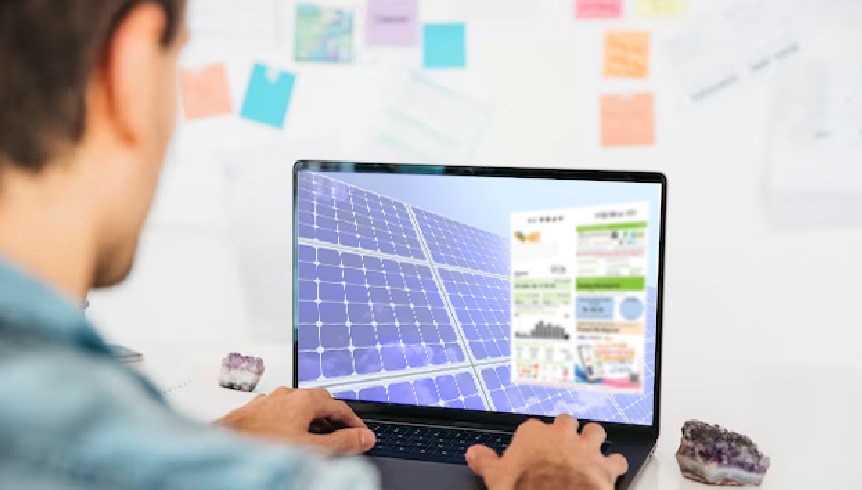
As more and more homes and businesses in Pakistan turn towards renewable energy, solar power is rapidly becoming the go-to choice for cutting down electricity bills and contributing to a greener planet. But one of the most common questions people ask when considering solar energy is: How efficient are solar panels? Is the energy they generate enough to justify the investment?
Let’s break down the factors that impact solar panel efficiency, and explore how to maximize their potential to make the most out of your solar energy system.
What Does Solar Panels Efficiency Mean?
When we talk about solar panel efficiency, we’re essentially asking,
“How much sunlight can these panels convert into usable electricity?”
The higher the efficiency of the panel, the more power it can generate under similar circumstances.
In technical terms, solar panel efficiency is the percentage of sunlight that the panel can turn into electricity. For instance, a solar panel with 20% efficiency means that 20% of the sunlight hitting the panel is being converted into electricity, while the remaining 80% is either reflected or lost as heat.
While a 20% conversion rate might not sound high, it’s important to remember that solar energy is free! Even with lower efficiencies, your panels can still generate a significant amount of electricity over time.
Factors That Influence Solar Panel Efficiency
So, what exactly affects how efficient your solar panels are? Several factors come into play:
1. Type of Solar Panels
There are different types of solar panels, and each type has its own efficiency rating.
- Monocrystalline Panels: These are typically the most efficient solar panels, often reaching efficiency levels of around 20-22%. They are made from a single crystal structure, which allows for more electron movement, resulting in better performance.
- Polycrystalline Panels: These are slightly less efficient, with rates hovering around 15-18%. They’re made from multiple crystal fragments, which slightly reduces their ability to convert sunlight into electricity.
- Thin-Film Panels: These panels are less common in residential installations, with efficiency levels around 10-12%. However, they’re cheaper and more flexible, making them ideal for specific applications like large commercial installations.
2. Environmental Conditions
The climate in Pakistan, with its abundant sunshine, makes it a perfect location for solar power. However, solar panels can lose efficiency if they get too hot. In fact, for every degree above 25°C, most panels lose 0.5% of their efficiency. So, on a 40°C day, your panels might be operating at 7-8% less efficiency.
On the flip side, dust, debris, and bird droppings can block sunlight from reaching your panels, further reducing their efficiency. Regular maintenance and cleaning are essential to keep your panels operating at their best.
3. Orientation and Angle
How you position your solar panels also plays a big role in how efficient they are. In Pakistan, the optimal tilt angle for your solar panels should be close to the latitude of your location. This allows the panels to capture the most possible sunlight throughout the day.
Additionally, facing your panels toward the south will maximize exposure to sunlight. Even a small deviation from this angle can reduce efficiency by a few percentage points.
4. Shading
Just like you wouldn’t want a tree blocking your window view, you don’t want shade blocking your solar panels. Shading—whether from trees, buildings, or even nearby structures—can drastically reduce the efficiency of your system.
Even a small shaded section can impact the energy output of an entire panel string. If shading is unavoidable, consider micro-inverters or power optimizers to minimize the loss of power.
Real-Life Solar Panel Efficiency in Pakistan
Let’s bring this home with an example. In Pakistan, the average household uses 300-500 kWh of electricity per month. With an average of 5.5 hours of peak sunlight per day, a 5kW solar panel system could generate around 600-750 kWh per month. This could easily cover your household’s electricity needs—assuming the panels are running at optimal efficiency.
But remember, your actual energy output will vary depending on factors like shading, temperature, and how well-maintained your system is.
How to Boost Solar Panel Efficiency
If you’re wondering how to squeeze out every bit of efficiency from your solar panels, here are a few tips:
- Regular Maintenance: As I mentioned earlier, dirt, dust, and debris can block sunlight. Clean your panels at least twice a year to keep them functioning well.
- Monitor Performance: Many modern solar systems come with apps or dashboards that show real-time energy production. Use these tools to track how well your system is performing and identify any potential issues early.
- Optimize Panel Placement: Make sure your panels are installed at the best angle and orientation for your location. Even a slight adjustment could lead to significant improvements in efficiency.
- Upgrade Technology: Consider investing in more efficient panels or smart inverters that can adjust the power output based on real-time conditions.
Solar Panel Efficiency—What You Should Know
In conclusion, while solar panel efficiency might seem like a complex topic, the key takeaway is that even moderately efficient panels can provide substantial energy savings, especially in a sunny country like Pakistan. Whether you’re using monocrystalline, polycrystalline, or thin-film panels, the overall energy generation is more about maximizing your system’s potential than simply focusing on efficiency percentages.
Think of it like driving a car—fuel efficiency is important, but the way you drive, maintain your vehicle, and even the roads you take play a big role in how far you’ll go.
By understanding the factors that impact solar panel efficiency and taking steps to improve them, you can ensure that your investment in solar energy pays off for years to come.
Ready to learn more? Be sure to read my blog on How to Utilize Their Maximum Potential. For more tips on getting the most out of your solar energy system.







